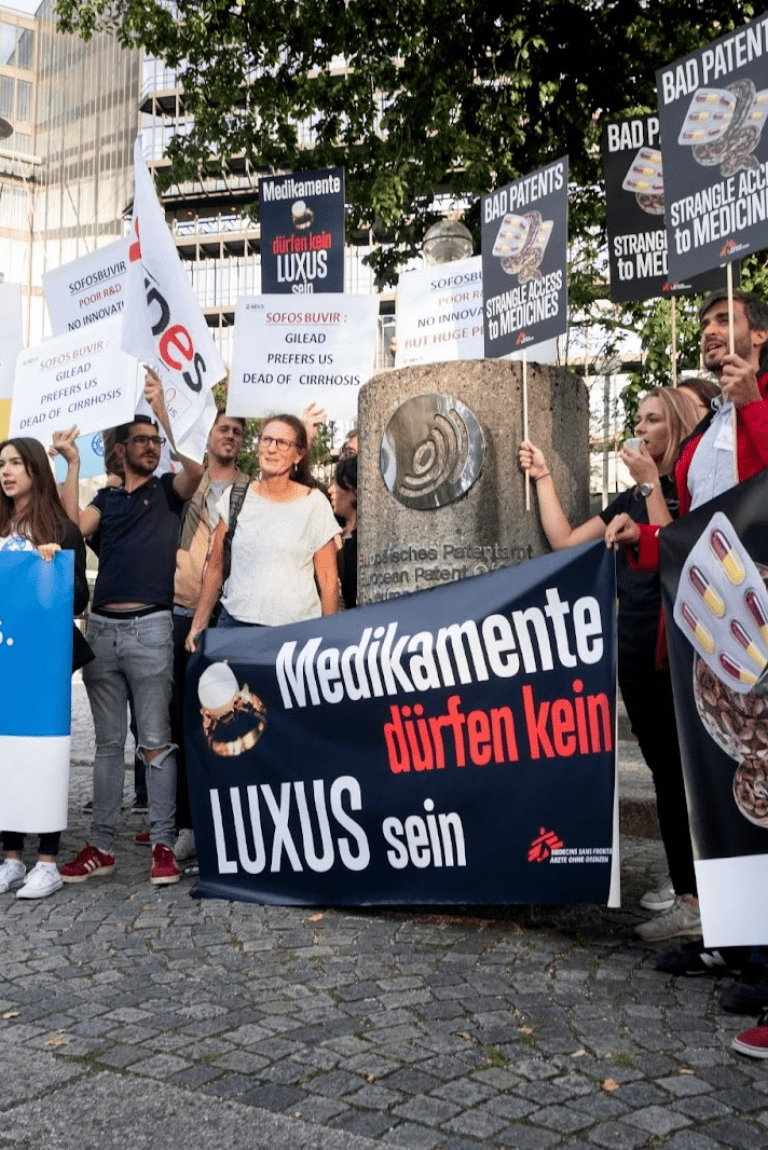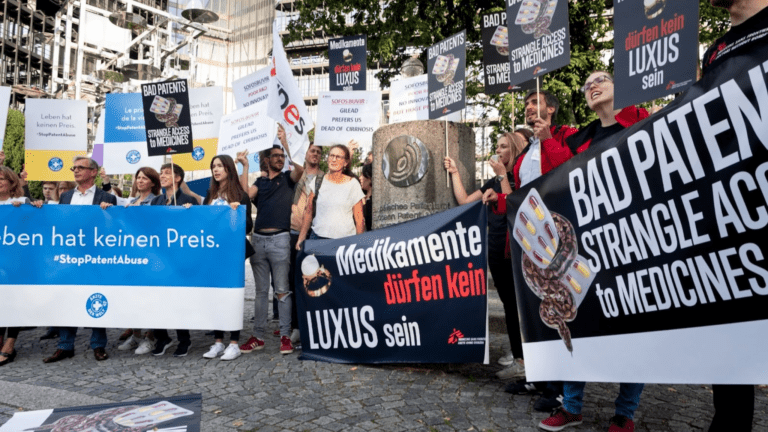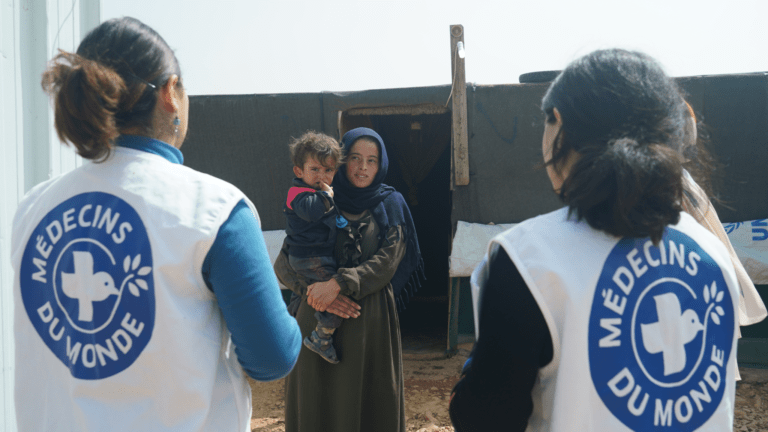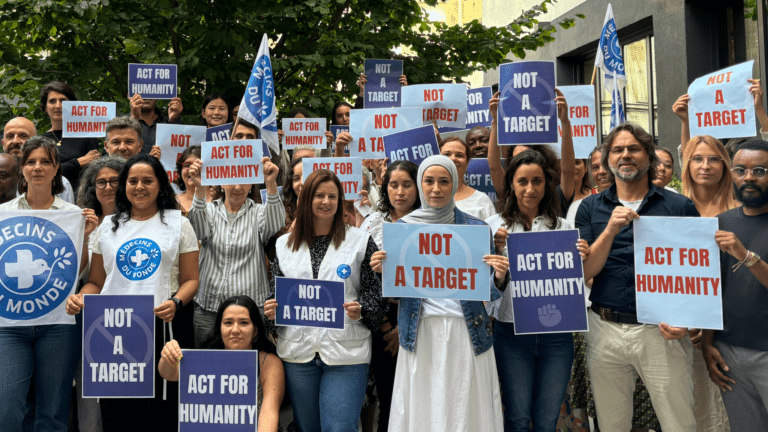Reaction of Civil Society Organizations to the Launch of the EPO's Observatory on Patent
2023-10-17

Civil society organisations respond to the creation of the Observatory on Patents and Technology: To build a sustainable patent system, the EPO must limit patent abuse by implementing stricter patentability standards for pharmaceutical patent examination.
Today, the European Patent Office (EPO) hosted the inaugural event of the Observatory on Patents and Technology¹. Created with a mission to contribute to the development of a “smarter” and “more sustainable” patent system, we hope that the Observatory will learn from the lessons brought by civil society working for the right to health. While our organisations welcome the launch of the Observatory, we expect that the EPO will seize this opportunity to integrate into its guidelines the implementation of target 3.8 of the global Sustainable Development Goals (SDGs) aiming to achieve universal health coverage, including access to safe, effective, quality, and affordable essential medicines and vaccines for all.
On 22 September 2023, our organizations, members, and allies of the European Alliance for Responsible R&D and Affordable Medicines, convened online with senior experts from the EPO to share our concerns on the ways the European patent system has been used to grant numerous unmerited patents in the health sector to large patent holders². Despite the EPO’s acknowledgement of the impact of the patents it issues in the realm of health, and its stand for the quality of patents, a long history of criticism and revindications coming from inside the EPO³ and from outsider stakeholders from different horizons, notably the European Parliament⁴, the EU Commission⁵, academics, and civil society organizations⁶, still raises several challenges the EPO needs proactively to address and overcome:
- Contribute to mapping and assessing the social impact of patent-based monopolies’ duration on people’s access and on public health expenditures in member states;
- Implement strict patentability standards for health-related patent applications and patents by revising the Guidelines for Examination in the EPO and adopting a pro-health interpretation of the European Patent Convention, allowing only genuinely innovative inventions to be patented;
- Review and secure the balanced composition of the SACEPO Working Party on Guidelines, the consultative forum for the annual revisions of Guidelines for Examination in the EPO, incorporating members from the academy, health professionals, public health, and NGOs;
- Establish tailored procedures for health-related patent applications and patent oppositions;
- Enhance transparency in the negotiation process for validation agreements, and exercise careful consideration when selecting countries for validation negotiations to assess potential negative impacts and risks.
Since the Agreement on Trade-Related Aspects of Intellectual Property Rights (TRIPS) obliged all member countries of the WTO to grant patents on medicines, civil society has engaged with the patent system in various ways to try to mitigate the negative social effects of patents, as well as TRIPS-plus provisions, on the accessibility and affordability of medicines in Europe and worldwide. Our efforts include:
- Challenging patents through oppositions or observations that aim to prevent the grant of undue patents that jeopardize access to affordable medicines or vaccines in Europe and elsewhere;⁷
- Providing policy recommendations and advocating for the use of compulsory licensing as permitted by the TRIPS agreement, in situations where the public interest is at stake, to address patent monopolies;⁸
- Providing policy recommendations to establish transparency within the pharmaceutical sector. This includes creating a comprehensive patent landscape for medical technologies, enabling all stakeholders to be aware of the existence of monopoly rights related to health products. It also involves advocating for transparency of R&D costs, and prices;⁹
- Promoting the adoption of practices that limit monopolies, particularly by the promotion of good practices in publicly funded intellectual property (IP) licensing within universities and research institutions;¹⁰
- Documenting the social impact of monopoly rights on access to essential products and healthcare budgets;¹¹
- Proposing policy recommendations for the development and the adoption of patentability guidelines for the examination of patent applications related to pharmaceuticals, with the goal of preventing undue monopoly rights¹².
While the establishment of the Observatory on Patents and Technology seems a positive step, we believe that the concerns raised by civil society require substantial resolutions. The sustainability of health systems in Europe, and beyond, calls for strict, transparent, and accountable policies on patents and other exclusive rights. These policies should be rooted in evidence-based experiences and democratic processes rather than ideological perspectives.
For the aforementioned reasons, we expect that the EPO:
- Provide greater clarity regarding the scope and procedures governing the Observatory on Patents and Technology;
- Furnish civil society organizations with a written and formal response outlining the EPO’s plans for addressing the legitimate concerns raised in this letter;
- Arrange thematic meetings with civil society organisations and qualified EPO representatives to engage in substantive discussions regarding the concerns highlighted in this letter.
Signatures :
-
International Treatment Preparedness Coalition (ITPC)
Médecins du Monde
Wemos
Universities Allied for Essential Medicines
¹ EPO, Boosting startups with intellectual property, 17 october 2023.
² EPO, The role of patents in the pharmaceutical sector, 22 September 2023.
⁴ European Parliament Resolution on EU options for improving access to medicines, 2 March 2017 (2016/2057(INI) : “48. …emphasises that the European Patent Office (EPO) and the Member States should only grant patents on medicinal products that strictly fulfill the patentability requirements of novelty, inventive step and industrial applicability, as enshrined in the European Patent Convention”
⁵ European Commission, Competition DG, Pharmaceutical Sector Inquiry : Final Report, 8 July 2009
⁶ European Alliance for Responsible R&D and Affordable Medicines, Joint Rome Declaration, June 2022
⁷ Patent opposition database ; Médecins Sans Frontières, Lethal Monopolies How pharmaceutical corporations game the patent system : A Case Study; Médecins du Monde, Médecins du Monde conteste le monopole de Pfizer/BioNTech sur le vaccin contre le Covid-19 : Observations de tiers sur les brevets EP3901260 et EP3901261 du Comirnaty, 5 april 2022.; Médecins du Monde, Brevet sur le sofosbuvir : Médecins du Monde continue son combat contre les monopoles abusifs, 22 nov. 2022; Médecins du Monde, Traitement contre l’hépatite C : l’État a payé le prix fort pour un brevet faible, 25 nov. 2022; AIDES et Médecins du Monde, Traitement contre l’hépatite C : le système des brevets fait obstacle à l’accès aux médicaments, 12 sept. 2023.
⁸ Anna S.Y. Wong, Clarke B. Cole, Jillian C. Kohler, TRIPS Flexibilities and Access to Medicines: An Evaluation of Barriers to Employing Compulsory Licenses for Patented Pharmaceuticals at the WTO, Oct 2022 ; Health Action international, The Trips Flexibilities Navigator
⁹ Médicaments et progrès thérapeutique : garantir l’accès, maîtriser les prix. La contribution de la société civile au débat public en France, 20 juin 2018
¹⁰ Universities Allied for Essential Medicines, Equitable Technology Access Framework.
¹¹ I-MAK, Overpatented, Overpriced. Curbing patent abuse: Tackling the root of the drug pricing crisis, September 2022; Hu Y, Eynikel D, Boulet P, Krikorian G., Supplementary protection certificates and their impact on access to medicines in Europe: case studies of sofosbuvir, trastuzumab and imatinib. J Pharm Policy Pract. 2020 Jan 14;13:1.
¹² Carlos Correa, Guidelines for the Examination of Patent Applications relating to Pharmaceuticals, United Nations Development Programme, 16 June 2016.















